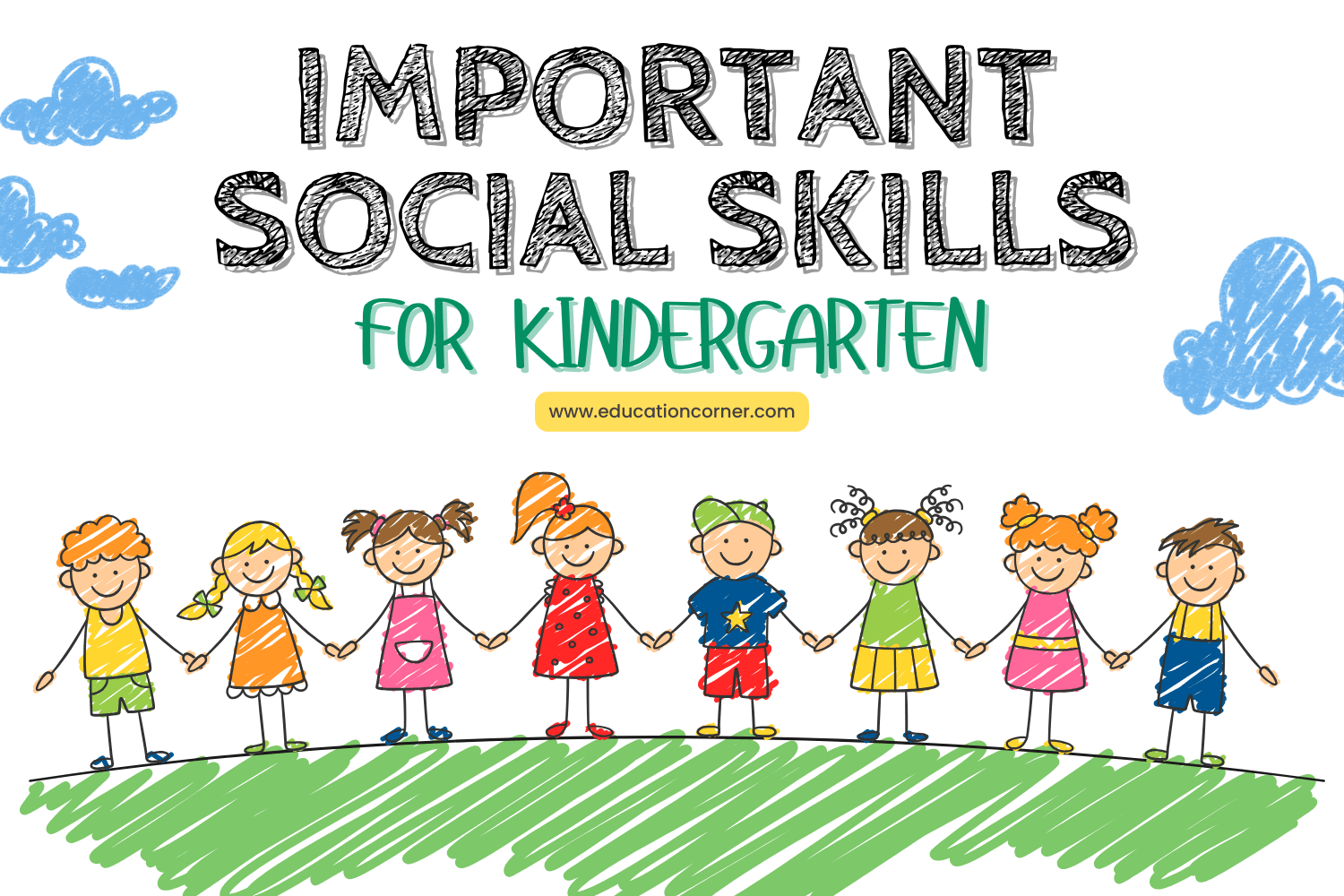Social and emotional development is just as important for a successful school experience as cognitive development. This development begins before the child ever sets foot in a classroom, and continues unabated throughout her entire academic career.
Kindergarten is a particularly important period for this area of development; it’s where the foundational skills for appropriate social behavior are learned and embedded. There are a few social skills that are particularly important for a successful transition to kindergarten.
The 5 Most Important Social Skills for Kindergarten-Aged Children
1) Understanding the difference between right and wrong, and understanding that there are consequences for their actions
School can come as quite a shock to some children. Quite suddenly, they’re placed in an environment where teams of strange adults can inflict consequences on them for breaking any one of a long list of rules. This can be an especially difficult transition if the child has never needed to recognize any authority other than their parents (or caregivers).
This transition can go very smoothly, on the other hand, provided that the children understand the difference between right and wrong. This involves respecting the feelings and rights of others, and recognizing and respecting the authority figures responsible for enforcing the rules.
2) Using words to express their needs and feelings, and understanding that others have feelings too
Learning to express feelings in a socially appropriate way is vital to a successful academic career. By kindergarten, children should be able to use their words to express how they feel. If they can’t do this, and instead choose to hit, scream, or throw things, they’ll experience a tremendous amount of difficulty in the classroom.
Not only will they be less likely to have their needs and wants met, they’ll probably experience social difficulties with their peers as well. It’s important for them to learn more constructive ways of expressing their emotions, and to respect the feelings and needs of others as well.
3) Sharing, taking turns, and using nice words when playing with other children
This is one of the most important skills tackled during kindergarten, and one that will significantly affect the rest of your child’s academic career. It’s incredibly rare to find a kindergarten classroom with one of everything for every student in the class, and as such it will simply be necessary for your child to learn to share toys, supplies, materials, and attention.
Do be patient as you monitor your child’s progress with this skill. Kindergarten children are just beginning to learn how to share politely, and it often takes several years for children to learn how to do it consistently.
4) Playing alone or with other children, without needing constant supervision
As children become older and enter higher levels of learning, they’re expected to exhibit more independence and require less and less direct supervision. This is often a matter of necessity; it simply isn’t possible for a teacher to individually supervise every one of the twenty or more students in her class.
In kindergarten, your child should be able to attend to a task without constant reminders of what to be doing. This will prepare him for future grades, and will help build a sense of independence and personal accomplishment.
5) Making decisions independently and taking risks, while remaining safe
For many children, kindergarten is a scary new place which provokes a great deal of anxiety. These children may struggle in school, because their anxiety prevents them from exploring new places, considering new ideas, and trying new things.
For children who are curious and are willing to risk making mistakes, kindergarten is a wonderful place, filled with opportunities to learn, to play, and to participate in interesting new activities. To whatever extent is possible, help your child foster a healthy sense of curiosity and willingness to explore new things. This will help him a great deal as he transitions to kindergarten.
Of course, this curiosity should be balanced with an awareness of safety, both for himself and for others. Learn more about Kindergarten Readiness

